Over the past few years, the Collective for the Political Determinants of Health has grown into a strong international community of scholars who share a commitment to advancing research on how power constellations, institutions, interests, and ideological positions affect health within different political systems and cultures, and at different levels of governance.
In February, we launched a call for applications for new members. Applications were open to all scholars regardless of seniority. Our aim is to ensure a diverse and dynamic group that includes younger scholars and members from different regions, backgrounds, and disciplines.
We received 57 applications, which were reviewed by 6 members of the Collective. We selected 13 new members, bringing our total number of members to 43.
The new members will engage actively with the collective through events as well as our blog. “ We are delighted to welcome the new members to the Collective. They come from a broad range of disciplines and will contribute to expanding and deepening our understanding of the political determinants of health across the globe from different disciplines and perspectives.” Says Katerini Storeng, Co-Chair of the Collective for the Political Determinants of Health
Sakiko Fukuda-Parr, Co-Chair of the Collective for the Political Determinants of Health says: "I am delighted to see the expanded Collective membership. We count on you to bring new ideas and perspectives, from different experiences, institutional structures, theories and world views about the political determinants of health. We look forward to continued collaboration amongst new and continuing members."
New member Felix Stein says: “I join the collective to be in touch with experts from around the globe who push our understanding of how power operates in Global Health.”
The Collective members have diverse backgrounds and areas of expertise. New member Gayle Amul says: “As a researcher from the Philippines who has worked in Southeast Asia for the past 15 years, I want to contribute insights from the region, which is often underrepresented in global health discussions and in the discourse of the political determinants of health.”
Meet the new members
Felix Stein
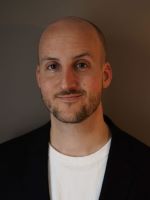 Dr Felix Stein is an economic anthropologist with a special interest in global health governance and development finance. He works at the Department of Anthropology at the University of Amsterdam, and the Centre for Development and the Environment at the University of Oslo. In Amsterdam he leads a five-year research project on the global reparations movements, comparing reparations made over pandemic outbreaks (for which he study cholera in Haiti) to reparations over climate change and toxic environments. In Oslo, he contributes to the research on public-private partnerships in global health and to the analysis of Scandinavian vaccine solidarity.
Dr Felix Stein is an economic anthropologist with a special interest in global health governance and development finance. He works at the Department of Anthropology at the University of Amsterdam, and the Centre for Development and the Environment at the University of Oslo. In Amsterdam he leads a five-year research project on the global reparations movements, comparing reparations made over pandemic outbreaks (for which he study cholera in Haiti) to reparations over climate change and toxic environments. In Oslo, he contributes to the research on public-private partnerships in global health and to the analysis of Scandinavian vaccine solidarity.
Tracey Wagner-Rizvi
 Tracey Wagner-Rizvi is Research Fellow at the University of Edinburgh. Her research examines themes relating to relating to non-State actors (NSAs), especially corporate actors, in governance and policy-making (particularly health policy), conflicts of interest, multistakeholderism, and the political and corporate determinants of health. She holds a PhD in Global Governance from the Balsillie School of International Affairs, University of Waterloo. She lived in Pakistan for 13 years where she worked for UNICEF, local and international non-governmental organizations, and a national newspaper. During that time, she campaigned for legislation to ban the marketing of infant formula and baby foods, and observed firsthand the industry’s influence on both national and global health policy.
Tracey Wagner-Rizvi is Research Fellow at the University of Edinburgh. Her research examines themes relating to relating to non-State actors (NSAs), especially corporate actors, in governance and policy-making (particularly health policy), conflicts of interest, multistakeholderism, and the political and corporate determinants of health. She holds a PhD in Global Governance from the Balsillie School of International Affairs, University of Waterloo. She lived in Pakistan for 13 years where she worked for UNICEF, local and international non-governmental organizations, and a national newspaper. During that time, she campaigned for legislation to ban the marketing of infant formula and baby foods, and observed firsthand the industry’s influence on both national and global health policy.
Owain Williams
 Dr Owain Williams is an Associate Professor in Global Political Economy and Health. He is Director of Global Political Economy programmes at Leeds. He has worked across Global Public Health, International Relations and Political Economy and has been at the forefront of developing interdisciplinary political economies of health. He has developed a range of work on the global political economy of health and food and their governance, and more recently on the COVID pandemic. His current focus in on the COVID pandemic and also expanding work on market power and oligopoly, and the role of trade, debt and austerity in shaping health and other social outcomes. Most of his work is with and on the Global South and on neoliberal capitalism. He has taught both in schools of public health and political science publishing in a dual track across social sciences and health related journals. His work includes some 60 papers and edited and co-authored books.
Dr Owain Williams is an Associate Professor in Global Political Economy and Health. He is Director of Global Political Economy programmes at Leeds. He has worked across Global Public Health, International Relations and Political Economy and has been at the forefront of developing interdisciplinary political economies of health. He has developed a range of work on the global political economy of health and food and their governance, and more recently on the COVID pandemic. His current focus in on the COVID pandemic and also expanding work on market power and oligopoly, and the role of trade, debt and austerity in shaping health and other social outcomes. Most of his work is with and on the Global South and on neoliberal capitalism. He has taught both in schools of public health and political science publishing in a dual track across social sciences and health related journals. His work includes some 60 papers and edited and co-authored books.
Meg Davis
 Professor Sara (Meg) Davis is the principal investigator of the Digital Health and Rights Project at the University of Warwick. She has over twenty years’ experience in global health and human rights as a scholar and practitioner, and is the author of two books, most recently The Uncounted: Politics of data in global health (Cambridge 2020). She earned her PhD at the University of Pennsylvania and held postdoctoral fellowships at Yale University and UCLA. She was China researcher at Human Rights Watch, and founding executive director of Asia Catalyst, which trained hundreds of community-based organizations on governance and human rights. At the Global Fund to Fight AIDS, TB and Malaria, Dr. Davis led early work to operationalise the Fund’s commitments on human rights. She has held visiting fellowships at New York University, Columbia University, and Fordham University and taught at the Geneva Centre for Humanitarian Studies, University of Alabama at Birmingham, Temple University, Yale University, and University of Pennsylvania. Her consulting clients have included UNDP, UNAIDS, IFRC, ICRC,, Global Fund Board delegations, and civil society networks. In 2017, she was one of three winners of the International Geneva Award.
Professor Sara (Meg) Davis is the principal investigator of the Digital Health and Rights Project at the University of Warwick. She has over twenty years’ experience in global health and human rights as a scholar and practitioner, and is the author of two books, most recently The Uncounted: Politics of data in global health (Cambridge 2020). She earned her PhD at the University of Pennsylvania and held postdoctoral fellowships at Yale University and UCLA. She was China researcher at Human Rights Watch, and founding executive director of Asia Catalyst, which trained hundreds of community-based organizations on governance and human rights. At the Global Fund to Fight AIDS, TB and Malaria, Dr. Davis led early work to operationalise the Fund’s commitments on human rights. She has held visiting fellowships at New York University, Columbia University, and Fordham University and taught at the Geneva Centre for Humanitarian Studies, University of Alabama at Birmingham, Temple University, Yale University, and University of Pennsylvania. Her consulting clients have included UNDP, UNAIDS, IFRC, ICRC,, Global Fund Board delegations, and civil society networks. In 2017, she was one of three winners of the International Geneva Award.
Aloysius Ssennyonjo
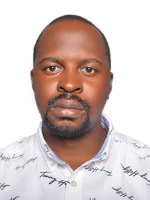 Dr. Aloysius Ssennyonjo is a Senior Lecturer at Makerere University School of Public Health with over 12 years of professional experience. He is interested in the critical analysis of complex health systems, policy, and broader development challenges. Dr Ssennyonjo is an interdisciplinary scholar whose work draws on public health, management science, political science, development studies, public administration and management, public policy, economics and organisation studies. He is particularly interested in political economy analysis focusing on the intersection of health, politics and development. Aloysius is also interested in the application of innovative research and evaluation methodologies that consider complex causality such as: critical realism, theory-driven evaluations (e.g. realist evaluation), process tracing, contribution analysis and social network analysis.
Dr. Aloysius Ssennyonjo is a Senior Lecturer at Makerere University School of Public Health with over 12 years of professional experience. He is interested in the critical analysis of complex health systems, policy, and broader development challenges. Dr Ssennyonjo is an interdisciplinary scholar whose work draws on public health, management science, political science, development studies, public administration and management, public policy, economics and organisation studies. He is particularly interested in political economy analysis focusing on the intersection of health, politics and development. Aloysius is also interested in the application of innovative research and evaluation methodologies that consider complex causality such as: critical realism, theory-driven evaluations (e.g. realist evaluation), process tracing, contribution analysis and social network analysis.
Dr Ssennyonjo’s professional experience includes leading and coordinating several research and capacity-building projects. He has consulted for several agencies, including the MOH, Enabel, World Bank, IntraHealth Uganda, RTI, WHO, UNFPA, Rutgers WPF, and Cordaid. Dr Ssennyonjo is also a founding member of Collective Action Uganda and a board member of several development initiatives/bodies.
Dr Ssennyonjo holds a PhD in Development Studies (University of Antwerp, Belgium). Using Uganda as a case study, his PhD examined the interaction of government politics, bureaucratic systems and the political economy of multisectoral coordination for universal health coverage within African government systems. He holds a Bachelor of Medicine and Bachelor of Surgery (Makerere University Kampala), an MSc. in Global Health and Public Policy (University of Edinburgh, UK), and a Postgraduate Diploma (first class) in Monitoring and Evaluation (M&E) (Uganda Management Institute). Aloysius has received several academic awards such as Best Student in Uganda, Uganda Certificate of Education (2003) & Uganda Advanced Certificate of Education (2005); Government of Uganda Undergraduate Scholarship; Commonwealth Shared Scholarship (University of Edinburgh); and Belgian Directorate for Development Co-operation PhD Scholarship (Institute of Tropical Medicine, Antwerp, Belgium).
Ben Hunter
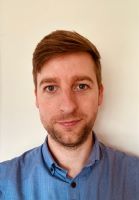 Ben Hunter is Lecturer in International Political Economy at the University of Glasgow. He works at the intersection of health and development, with a particular interest in issues of market formation in and around healthcare. This has included research projects on the commercial intermediaries operating within markets for healthcare provision and markets for healthcare training and recruitment; the corporatisation and consequent transformations taking place within private healthcare sectors; use of development aid and public-private partnerships to promote private provision of healthcare services; and the strategic efforts underway to position countries within a globalised commercial healthcare economy. Ben has drawn attention to the financialisation processes unfolding within national healthcare systems and the broader field of global health, and the challenge this poses for equitable access to healthcare services. His book, Investor States: Global Health at the End of Aid (2023, Cambridge University Press), charts recent trends wherein states operate as, with and for investors in the healthcare provision sectors of other nations, driving the expansion of corporate-oriented models for healthcare. Prior to joining the University of Glasgow, Ben worked at University of Sussex, King’s College London and as a researcher in the UK Parliament.
Ben Hunter is Lecturer in International Political Economy at the University of Glasgow. He works at the intersection of health and development, with a particular interest in issues of market formation in and around healthcare. This has included research projects on the commercial intermediaries operating within markets for healthcare provision and markets for healthcare training and recruitment; the corporatisation and consequent transformations taking place within private healthcare sectors; use of development aid and public-private partnerships to promote private provision of healthcare services; and the strategic efforts underway to position countries within a globalised commercial healthcare economy. Ben has drawn attention to the financialisation processes unfolding within national healthcare systems and the broader field of global health, and the challenge this poses for equitable access to healthcare services. His book, Investor States: Global Health at the End of Aid (2023, Cambridge University Press), charts recent trends wherein states operate as, with and for investors in the healthcare provision sectors of other nations, driving the expansion of corporate-oriented models for healthcare. Prior to joining the University of Glasgow, Ben worked at University of Sussex, King’s College London and as a researcher in the UK Parliament.
Jiwoo HA
 Jiwoo HA is a researcher at the Institute of Health & Environment, Seoul National University. His interests revolve around democracy, hegemonic struggle, health politics, health justice, and global health. His major theoretical frameworks include Republicanism (Philip Pettit) and Radical Democracy (Chantal Mouffe), which he aspires to further develop with a focus on health. His current research explores ‘Radicalization of Democracy towards Liberty, Equality and Health for All: an Analysis on Counter-Hegemonic Formation against Privatization in South Korea’, ‘Reimagining Civic Participation for Democratic Power Formation: Republicanism, Radical Democracy, and the People’, and ‘Can Health Promotion Facilitate Development in Fragile States?: An Instrumental Variable Estimation with Panel Data’. He received a BS and a BBA from Korea University and an MPH from Seoul National University.
Jiwoo HA is a researcher at the Institute of Health & Environment, Seoul National University. His interests revolve around democracy, hegemonic struggle, health politics, health justice, and global health. His major theoretical frameworks include Republicanism (Philip Pettit) and Radical Democracy (Chantal Mouffe), which he aspires to further develop with a focus on health. His current research explores ‘Radicalization of Democracy towards Liberty, Equality and Health for All: an Analysis on Counter-Hegemonic Formation against Privatization in South Korea’, ‘Reimagining Civic Participation for Democratic Power Formation: Republicanism, Radical Democracy, and the People’, and ‘Can Health Promotion Facilitate Development in Fragile States?: An Instrumental Variable Estimation with Panel Data’. He received a BS and a BBA from Korea University and an MPH from Seoul National University.
Els Torreele
 Dr Els Torreele is the Founding Director of æqua, a recently created Think Tank on Equity and Economic Justice for Health. She’s a global health and medical innovation expert, working to re-think the global pharmaceutical R&D and manufacturing ecosystem to prioritize people’s health needs and ensure equitable access to knowledge and technologies where and when needed.
Dr Els Torreele is the Founding Director of æqua, a recently created Think Tank on Equity and Economic Justice for Health. She’s a global health and medical innovation expert, working to re-think the global pharmaceutical R&D and manufacturing ecosystem to prioritize people’s health needs and ensure equitable access to knowledge and technologies where and when needed.
A Bio-Engineer and PhD from Brussels University (VUB), for over 20 years she has combined scientific research, pharmaceutical R&D, policy analysis and research, and advocacy at Brussels University, Médecins Sans Frontières, Drugs for Neglected Diseases initiative, and Open Society Foundations. Since 2020, she’s independent researcher and advisor including working with Rt. Hon. Helen Clark and other former members of the Independent Panel for Pandemic Preparedness and Response and with the WHO Council on the Economics of Health for All, chaired by Mariana Mazzucato. She is a Visiting Policy Fellow at the Institute for Innovation and Public Purpose, University College London, and a member of the WHO Technical Advisory Group on Vaccine Market Information for Access. A recent Rockefeller Bellagio Centre resident, she’s also an Honorary Science Fellow at the VUB, and author on over 50 international journal publications including in the Lancet, BMJ, Nature, and Vaccines, and a regular speaker at international conferences and contributor to the societal debate around medical innovation and access through media and social media.
Zahra Zeinali
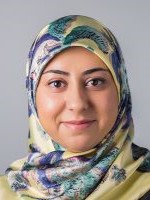 Dr. Zahra Zeinali is a medical doctor and global health scholar from Iran. She obtained her MD from the Iran University of Medical Sciences, her MPH from the Johns Hopkins Bloomberg School of Public Health, and has started pursuing a Doctor of Global Health Leadership and Practice degree at the University of Washington in 2022.
Dr. Zahra Zeinali is a medical doctor and global health scholar from Iran. She obtained her MD from the Iran University of Medical Sciences, her MPH from the Johns Hopkins Bloomberg School of Public Health, and has started pursuing a Doctor of Global Health Leadership and Practice degree at the University of Washington in 2022.
Zahra brings over seven years of global public health experience at the local, national, and international levels, starting with her co-founding the Iranian Medical Students’ Association and leadership in the International Federation of Medical Students’ Associations, where she led MENA region medical student associations and represented medical students in international multistakeholder events for a such as the World Health Assembly. She also brings a wealth of experience working at the interface of evidence and policy, particularly around health workforce planning and gender transformative leadership in health systems. She has been part of multiple international research initiatives, including the Rockefeller Foundation-Boston University 3-D Commission on Health Determinants, Data and Decision Making, and the Global Health 50/50 research initiative. She is also on the editorial board of the Journal of Health Equity and an editor for PLoS Global Public Health. She has been recognized for her work as an Emerging Voice for Global Health by Health Systems Global in 2020. She is now a board member at the Emerging Voices for Global Health.
Her research focuses on creating conditions conducive to achieving health and well-being for people by leveraging policy mechanisms that impact the social and structural determinants of health with a strong intersectional gender lens.
Joseph Harris
 Joseph Harris is an Associate Professor of Sociology at Boston University. He conducts comparative historical research that lies at the intersection of sociology, political science, and global health. His work explores the politics of healthcare access, infectious disease response, and global health governance. At BU, he founded and directs the Global Health Politics Workshop and is a Core Faculty Member in the Center for Emerging Infectious Diseases. He is author of Achieving Access: Professional Movements and the Politics of Health Universalism (Cornell University Press, 2017). He is Vice Chair of the International Studies Association’s Global Health Section, Deputy Editor of the Journal of Health and Social Behavior, and is a member of the Editorial Board at Studies in Comparative International Development and an Advisory Editor at Social Science and Medicine. He is co-founder of the American Sociological Association’s Global Health and Development Interest Group, a past member of the governing Council of the ASA Section on the Sociology of Development, and past Associate Editor at Social Science and Medicine. He has received two Fulbright scholarships for his research on the politics of health policy in Thailand. He received his doctorate in Sociology from the University of Wisconsin-Madison and holds a Master’s in Public Affairs from Princeton’s Woodrow Wilson School of Public and International Affairs. His research and commentary has appeared in such high-profile media outlets as National Public Radio, the Washington Post, U.S. News and World Report, and The Progressive magazine. In 2017, he received the Gitner Award for Distinguished Teaching, the College of Arts and Science’s highest teaching award.
Joseph Harris is an Associate Professor of Sociology at Boston University. He conducts comparative historical research that lies at the intersection of sociology, political science, and global health. His work explores the politics of healthcare access, infectious disease response, and global health governance. At BU, he founded and directs the Global Health Politics Workshop and is a Core Faculty Member in the Center for Emerging Infectious Diseases. He is author of Achieving Access: Professional Movements and the Politics of Health Universalism (Cornell University Press, 2017). He is Vice Chair of the International Studies Association’s Global Health Section, Deputy Editor of the Journal of Health and Social Behavior, and is a member of the Editorial Board at Studies in Comparative International Development and an Advisory Editor at Social Science and Medicine. He is co-founder of the American Sociological Association’s Global Health and Development Interest Group, a past member of the governing Council of the ASA Section on the Sociology of Development, and past Associate Editor at Social Science and Medicine. He has received two Fulbright scholarships for his research on the politics of health policy in Thailand. He received his doctorate in Sociology from the University of Wisconsin-Madison and holds a Master’s in Public Affairs from Princeton’s Woodrow Wilson School of Public and International Affairs. His research and commentary has appeared in such high-profile media outlets as National Public Radio, the Washington Post, U.S. News and World Report, and The Progressive magazine. In 2017, he received the Gitner Award for Distinguished Teaching, the College of Arts and Science’s highest teaching award.
Jin-Hwan Kim
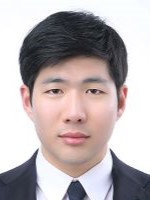 Dr Jin-Hwan Kim is a health system researcher based in South Korea, where he has pursued both his medical and academic training. Dr Kim completed his MSc in Health Policy and Management and later earned a PhD in Health Policy at the same institution. His research primarily examines health policy and system evaluation with a strong emphasis on equity and implementation. By drawing on South Korea's experiences, Dr Kim seeks to inform the development of health systems globally. He currently serves as a Research Professor at Seoul National University and holds a postdoctoral research fellowship awarded by the National Research Foundation of Korea. You can find a list of his publication and related scholarly works at his homepage, and request information from him via e-mail.
Dr Jin-Hwan Kim is a health system researcher based in South Korea, where he has pursued both his medical and academic training. Dr Kim completed his MSc in Health Policy and Management and later earned a PhD in Health Policy at the same institution. His research primarily examines health policy and system evaluation with a strong emphasis on equity and implementation. By drawing on South Korea's experiences, Dr Kim seeks to inform the development of health systems globally. He currently serves as a Research Professor at Seoul National University and holds a postdoctoral research fellowship awarded by the National Research Foundation of Korea. You can find a list of his publication and related scholarly works at his homepage, and request information from him via e-mail.
Gianna Gayle Amul
 Gianna Gayle Amul, PhD Gayle has a PhD in Global Health (2024) from the University of Geneva's Institute of Global Health, Faculty of Medicine. She holds an MSc in Asian Studies (2012) and a BA in Political Science (2007). Gayle was Senior Policy Researcher and Director for Communications at Research For Impact Singapore from October 2020 to March 2023. She was a Research Associate at the Lee Kuan Yew School of Public Policy from September 2015 to September 2020. She was part of the team that developed the ASEAN Secretariat's 2015 report on the ASEAN Socio-Cultural Community Scorecard. She was also a Senior Analyst on health and climate security at the Centre for Non-Traditional Security (NTS) Studies in Singapore from 2012-2015. She has three years of teaching experience in the Philippines and Singapore. She started her research career with research projects on the MDGs, human security, and ASEAN integration. She has written and co-authored journal articles on tobacco control and alcohol control in the Asia and the Pacific Policy Studies, International Journal of Health Policy and Management, Global Health Governance Journal, the Journal of Studies on Alcohol and Drugs, Frontiers in Political Science, Frontiers in Public Health, International Journal of Public Health, and the International Journal of Alcohol and Drug Research. She has also published commentaries in the Lancet and Lancet Global Health. She is a collaborator in the Global Burden of Disease Study led by the Institute of Health Metrics and Evaluation. She is affiliated with the School of Government at the Ateneo de Manila University (Philippines) as a Non-Resident Research Fellow. She serves on the Editorial Board of Globalization and Health. She also volunteers as Secretary of the Asia Pacific Alcohol Policy Alliance and serves on the Board of the Global Alcohol Policy Alliance.
Gianna Gayle Amul, PhD Gayle has a PhD in Global Health (2024) from the University of Geneva's Institute of Global Health, Faculty of Medicine. She holds an MSc in Asian Studies (2012) and a BA in Political Science (2007). Gayle was Senior Policy Researcher and Director for Communications at Research For Impact Singapore from October 2020 to March 2023. She was a Research Associate at the Lee Kuan Yew School of Public Policy from September 2015 to September 2020. She was part of the team that developed the ASEAN Secretariat's 2015 report on the ASEAN Socio-Cultural Community Scorecard. She was also a Senior Analyst on health and climate security at the Centre for Non-Traditional Security (NTS) Studies in Singapore from 2012-2015. She has three years of teaching experience in the Philippines and Singapore. She started her research career with research projects on the MDGs, human security, and ASEAN integration. She has written and co-authored journal articles on tobacco control and alcohol control in the Asia and the Pacific Policy Studies, International Journal of Health Policy and Management, Global Health Governance Journal, the Journal of Studies on Alcohol and Drugs, Frontiers in Political Science, Frontiers in Public Health, International Journal of Public Health, and the International Journal of Alcohol and Drug Research. She has also published commentaries in the Lancet and Lancet Global Health. She is a collaborator in the Global Burden of Disease Study led by the Institute of Health Metrics and Evaluation. She is affiliated with the School of Government at the Ateneo de Manila University (Philippines) as a Non-Resident Research Fellow. She serves on the Editorial Board of Globalization and Health. She also volunteers as Secretary of the Asia Pacific Alcohol Policy Alliance and serves on the Board of the Global Alcohol Policy Alliance.
Lauren Paremoer
 Lauren Paremoer is a staff member of the Political Studies Department at the University of Cape Town and a member of People’s Health Movement (PHM) South Africa. She also serves as PHM's Global Steering Council representative for the Democratising Global Health Governance programme. Her research focuses on health activism, global governance for health, and political mobilisation aimed at realising social citizenship in societies of the Global South. She has explored these themes in relation to the struggle for the right to HIV/AIDS treatment in South Africa, the social reproduction work undertaken by community health workers and women more generally, and the use of for-profit markets and philanthrocapitalism to ameliorate the worst effects of deteriorating public health systems.
Lauren Paremoer is a staff member of the Political Studies Department at the University of Cape Town and a member of People’s Health Movement (PHM) South Africa. She also serves as PHM's Global Steering Council representative for the Democratising Global Health Governance programme. Her research focuses on health activism, global governance for health, and political mobilisation aimed at realising social citizenship in societies of the Global South. She has explored these themes in relation to the struggle for the right to HIV/AIDS treatment in South Africa, the social reproduction work undertaken by community health workers and women more generally, and the use of for-profit markets and philanthrocapitalism to ameliorate the worst effects of deteriorating public health systems.
About the Collective
The Collective is dedicated to advancing research on how power constellations, institutions, interests, and ideological positions affect health within different political systems and cultures, and at different levels of governance.
The Collective brings together an international and interdisciplinary group of scholars and practitioners interested in the political determinants of health. We provide a collaborative platform for our members, convene events and workshops, share information and enable joint publications and research projects.
The Collective grew out of the Independent Panel on Global Governance for Health, which between 2014 and 2020 followed up the recommendations of the Lancet-University of Oslo Commission on Global Governance for Health.
